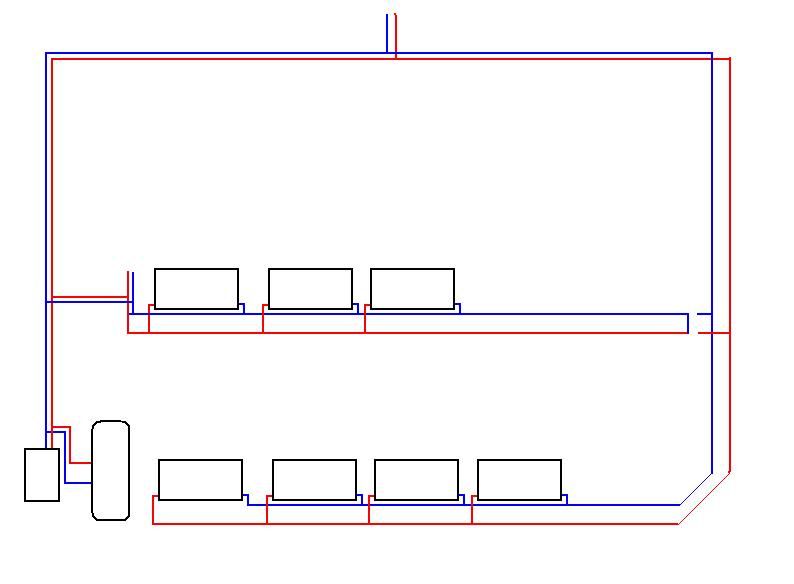Hey all
Just hoping someone can advise, if the central heating is on but all radiators are closed, will that…
1 - Damage the boiler in any way?
2 - Cost much?
To give some context, I want to get the independent smart radiator controls (the ones where each radiator operates independently depending on their own schedule and room temperature). The problem I see is firstly I would have to have the heating on the entire time (unless I know all heating will be off – e.g. middle of night) so that when one of the independent radiator valves open, there is heated water to use. I don’t know much about central heating but I’m assuming that if all radiators are off, the boiler may just need to keep the water that is present in its system at the desired temperature, which wouldn’t cost much. I just worry if that would damage the pump. This would also be pointless if it still costs a fair bit running it like that.
There are total systems like the new TADO one, but to would cost me about £450 to do my house, whereas I can buy separate independent controls which would only set me back £210.
Thanks for any help
Alan
Just hoping someone can advise, if the central heating is on but all radiators are closed, will that…
1 - Damage the boiler in any way?
2 - Cost much?
To give some context, I want to get the independent smart radiator controls (the ones where each radiator operates independently depending on their own schedule and room temperature). The problem I see is firstly I would have to have the heating on the entire time (unless I know all heating will be off – e.g. middle of night) so that when one of the independent radiator valves open, there is heated water to use. I don’t know much about central heating but I’m assuming that if all radiators are off, the boiler may just need to keep the water that is present in its system at the desired temperature, which wouldn’t cost much. I just worry if that would damage the pump. This would also be pointless if it still costs a fair bit running it like that.
There are total systems like the new TADO one, but to would cost me about £450 to do my house, whereas I can buy separate independent controls which would only set me back £210.
Thanks for any help
Alan



